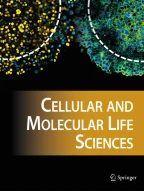Abstract.
During the last decade, interest has grown in the beneficial effects of non-steroidal anti-inflammatory drugs (NSAIDs) in neurodegeneration, particularly in pathologies such as Alzheimer’s (AD) and Parkinson’s (PD) disease. Evidence from epidemiological studies has indicated a decreased risk for AD and PD in patients with a history of chronic NSAID use. However, clinical trials with NSAIDs in AD patients have yielded conflicting results, suggesting that these drugs may be beneficial only when used as preventive therapy or in early stages of the disease. NSAIDs may also have salutary effects in other neurodegenerative diseases with an inflammatory component, such as multiple sclerosis and amyotrophic lateral sclerosis. In this review we analyze the molecular (cyclooxygenases, secretases, NF-κB, PPAR, or Rho-GTPasas) and cellular (neurons, microglia, astrocytes or endothelial cells) targets of NSAIDs that may mediate the therapeutic function of these drugs in neurodegeneration.
Similar content being viewed by others
Author information
Authors and Affiliations
Corresponding author
Additional information
Received 4 December 2006; received after revision 24 January 2007; accepted 23 February 2007
Rights and permissions
About this article
Cite this article
Lleo, A., Galea, E. & Sastre, M. Molecular targets of non-steroidal anti-inflammatory drugs in neurodegenerative diseases. Cell. Mol. Life Sci. 64, 1403–1418 (2007). https://doi.org/10.1007/s00018-007-6516-1
Published:
Issue Date:
DOI: https://doi.org/10.1007/s00018-007-6516-1
